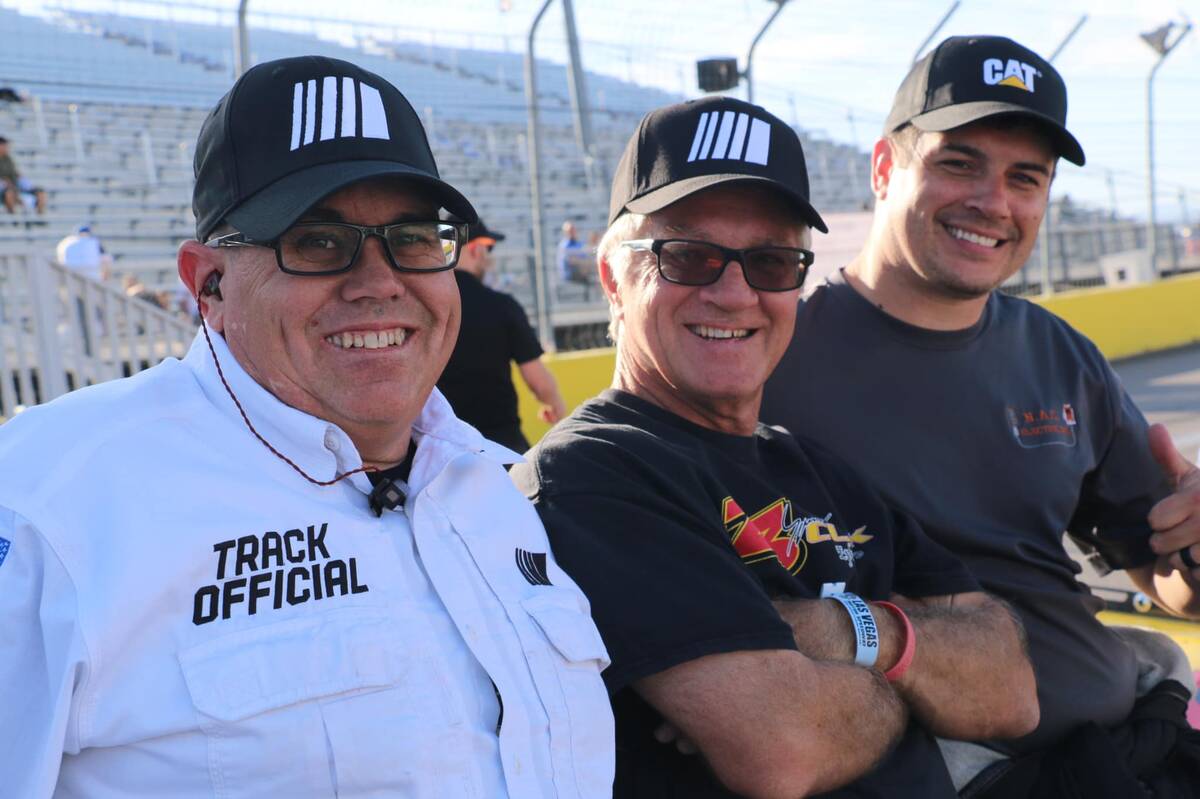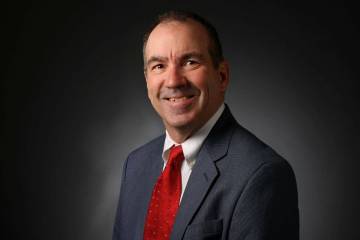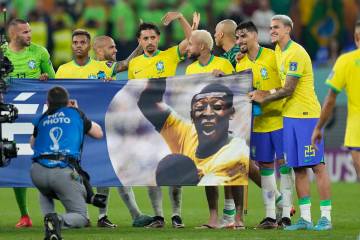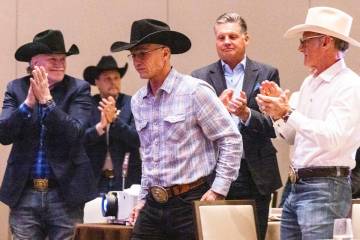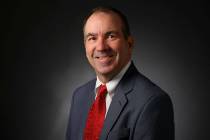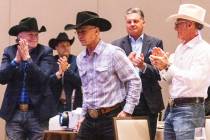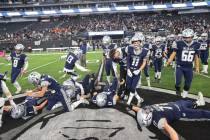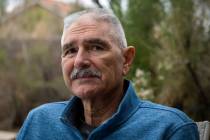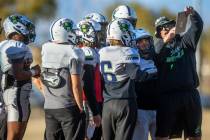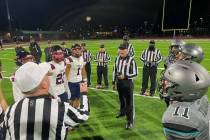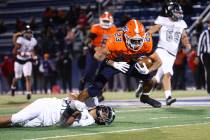LVMS Bullring program resurrected in late racer’s memory
The throaty roar of racing engines will reverberate again at the Las Vegas Motor Speedway Bullring on Saturday when the local grassroots NASCAR program drops the green flag on its 2022 season.
The local racers, those who support them and others merely seeking family entertainment at a reasonable price have former NASCAR driver T.J. Clark and his late son, Spencer, to thank for that.
T.J. Clark drove in the inaugural NASCAR Truck Series race in 1995 and 30 others before focusing on becoming a coach and mentor for Spencer, a budding star who was killed at age 19 in a 2006 highway crash shortly after making his Xfinity Series debut.
Fervent memories of spending time with his progeny at the Bullring were mostly what kept T.J. Clark going. So when the Saturday night cards that already were losing money were mothballed during COVID, he steadfastly insisted the old oval with the tight corners should keep going, too.
A meeting was arranged with LVMS president Chris Powell — one of them racin’ deals, as NASCAR drivers like to say —that might have saved the Bullring from being permanently padlocked.
Legacy continues
“There’s a lot of history here,” Clark said of the three-eighths-mile ribbon of asphalt that launched the careers of NASCAR champions Kurt and Kyle Busch, Clark’s son and so many other sons. “When the rumor got out the Bullring wasn’t going to be reopening, I called Chris — ‘Can I come in and see you?’”
Powell said that phone call last year stopped him from having to make difficult decisions regarding the Bullring’s future. He called Clark “a lifesaver, because I really didn’t know where we were going to turn.”
Most of the Bullring staff had been laid off when Clark agreed to take the wheel as its new director.
“It’s no secret that operating a short track is not the most lucrative exercise,” Powell said. “But I look at the Bullring and short-track racing in general as part of the fabric of auto racing.
“After I met with T.J., we had a meeting with the competitors, and that’s what I told them: This community deserves to have short-track racing, just as it needs the Smith Center for the performing arts, just like it needs Little League baseball and fields for kids to play on.”
Powell isn’t so naive to think that shuttering the Bullring would have had the same effect as, say, the Dodgers and Giants leaving New York during baseball’s halcyon days. But, as he said, “These are the kind of things that when they are lost in a community they leave a void.”
Counting cars
The sound of those engines bouncing off grandstands again would have been a nice story, even had the Bullring continued to leak red ink like motor oil.
But “I didn’t lose money on one race,” Clark said, seemingly more proud of that than the day he ran 12th in the trucks at Martinsville Speedway with limited sponsorship.
Having had to hang up his helmet because of lack of finances, he knows how important sponsors are to the long-term success of any auto racing endeavor. Leaning on his contacts in the industry and around town, he lured sponsor dollars to the Bullring that precluded the racers’ entry fees from having to sustain the program.
As a former racer, Clark also knew how much money and resources were tied up in engines and engine development. So he changed those rules to lower the cost of competing. Same with tires.
Still, the days of attracting 30 to 40-car fields are probably gone for good, Clark said. But then so, too, are the massive grandstands at NASCAR tracks as casual fans and even some diehards have moved on to other sporting things of interest.
“Nowadays, if I can pull in 12 to 16 cars (in seven classes), that’s a pretty good little field,” Clark said.
And as the local racers will tell you, a pretty good little field is much preferred to no field at all.
Contact Ron Kantowski at rkantowski@reviewjournal.com or 702-383-0352. Follow @ronkantowski on Twitter.
Bullring opening day
What: NASCAR Advance Auto Parts Series at the Las Vegas Motor Speedway Bullring.
When: 2 p.m. Saturday.
Racing classes: Pro Late Model, Bombers, 602 Modifieds, Legends Cars, Bandoleros, Skid Plates, Super Stocks.
Tickets: $8 for adults, children under 12 free. Students and all school personnel along with a guest also free with student ID.
Information: lvms.com, 702-644-4444.



